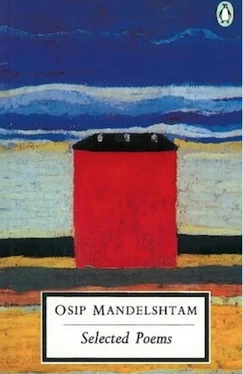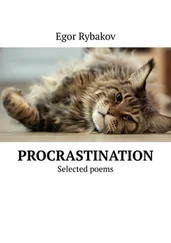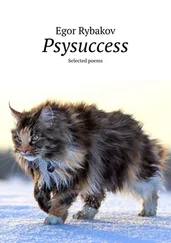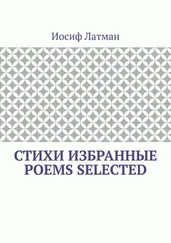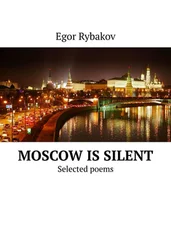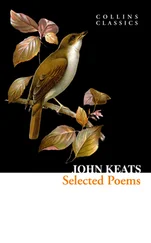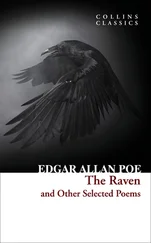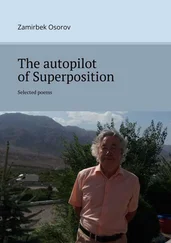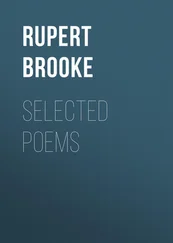Osip Mandelshtam - Selected Poems
Здесь есть возможность читать онлайн «Osip Mandelshtam - Selected Poems» весь текст электронной книги совершенно бесплатно (целиком полную версию без сокращений). В некоторых случаях можно слушать аудио, скачать через торрент в формате fb2 и присутствует краткое содержание. Город: London, Год выпуска: 1991, ISBN: 1991, Издательство: Penguin Books, Жанр: Поэзия, на английском языке. Описание произведения, (предисловие) а так же отзывы посетителей доступны на портале библиотеки ЛибКат.
- Название:Selected Poems
- Автор:
- Издательство:Penguin Books
- Жанр:
- Год:1991
- Город:London
- ISBN:978-0-14-196539-0
- Рейтинг книги:4 / 5. Голосов: 1
-
Избранное:Добавить в избранное
- Отзывы:
-
Ваша оценка:
- 80
- 1
- 2
- 3
- 4
- 5
Selected Poems: краткое содержание, описание и аннотация
Предлагаем к чтению аннотацию, описание, краткое содержание или предисловие (зависит от того, что написал сам автор книги «Selected Poems»). Если вы не нашли необходимую информацию о книге — напишите в комментариях, мы постараемся отыскать её.
Selected Poems — читать онлайн бесплатно полную книгу (весь текст) целиком
Ниже представлен текст книги, разбитый по страницам. Система сохранения места последней прочитанной страницы, позволяет с удобством читать онлайн бесплатно книгу «Selected Poems», без необходимости каждый раз заново искать на чём Вы остановились. Поставьте закладку, и сможете в любой момент перейти на страницу, на которой закончили чтение.
Интервал:
Закладка:
Even in My time of 1923, Mandelshtam shows an impressive familiarity with biological terminology; biology is the first of the sciences – followed by physics and cosmology – to enlarge his poetics. By 1930 he had made friends with Boris Kuzin, an eager proponent of neo-Lamarckism, a theory of evolution discredited before and since which propounds the inheritance of acquired characteristics and supposes that species evolve by an almost spiritual response to the demands of their environment. Stalin and his charlatan agronomist Lysenko favoured this pre-Darwinian theory for its implications in creating Homo sovieticus out of Homo sapiens and for the promise of training wheat to grow in the Arctic: very soon, however, the neo-Lamarckists were to be purged for the implicit idealism, even theism, of their doctrines. Mandelshtam went back to the original Philosophie zoologique of 1809 and saw something the biologists had ignored: Lamarck treats evolution as though it were literally a descent from warm-blooded humanity through the reptiles to the insensate protean forms of life and implies, as well he might after his bitter experience of the French revolution, that evolution is a reversible process, a ladder ( une échelle ) that nature could well descend or even snatch away. Furthermore, Lamarck’s hierarchical survey of the genera and families of animals uncannily echoes Dante’s nine circles of hell, each circle blacker and more painful.
Biology and Italian poetry are linked: the narrative thread spun by Ariosto in the poem of that name, the cult of the dead Laura in the Petrarch sonnets that Mandelshtam so lovingly translated in 1933, the yearning for an unattainable Florence and Tuscany in the poems of the 1930s all correspond to Lamarck’s exploration of nature’s abysses, the unattainable sixth sense in ‘the lizard’s pineal eye’ (the fourth eight-line poem of 1934): these are secret worlds: as a variant of Ariosto puts it, ‘Friend of Ariosto, Petrarch and Tasso –/ Senseless, salty-sweet language/And the charming bivalves of clinched sounds, –/I’m afraid to open the clam’s pearl with a knife.’ Their labyrinthine symmetry creates a structure that enables Mandelshtam to make tragic sense of Stalin’s epoch.
This relevance of the Italian classics and of natural sciences to his predicament struck Mandelshtam on his last journey into Asia, a trip with biologists to Armenia that Bukharin’s patronage had gained for him. The 1930s brought about the ‘impact of Asia’ on Mandelshtam and many of his contemporaries: for Russian poets, Armenia and Georgia had replaced Italy and France as lands where lemon trees bloomed. Given the traditional Russian associations of Asia with the blind tyranny of Medes and Persians as opposed to Europe’s Hellenic freedom, it is only natural that Soviet poets should see ominous relevance in the cultural switch they were forced to make that accords with MacNeice’s lines: ‘For we are obsolete who like the lesser things,/Who play in corners with looking-glass and beads;/It is better we should go quickly, go into Asia…’
Dante, biology and Asia were the explosive: the detonator was provided by the second important death in Mandelshtam’s career, that of Mayakovsky, which ‘released the stream of poetry’ in him, as his widow phrased it. If Mayakovsky, sympathizer and propagandist, could not live under the regime, then the ‘genre of silence’ appeared to offer no safeguards. However irrational the reasoning, both Pasternak and Mandelshtam experienced a ‘second birth’ on Mayakovsky’s death: between 1930 and 1932 they wrote what are arguably their finest and boldest lyrics, using the last bubbles of freedom and the incomprehension of their censors to get them into print before twenty years of terror took poetry back to a purely oral genre.
In Tbilisi, on his way back from Armenia, in November 1930 Mandelshtam wrote a remarkable chain of stanzas to celebrate his reawakening to new, harsher textures, a ‘cat language’ of oral and written scratches and an Asiastic endurance of history’s oppression. Years later, when Armenia has faded from his themes, the new sensations of being blinded and deafened by menacing colours and sounds are permanently incorporated into Mandelshtam’s phonetic line and images. Armenia thus gives Mandelshtam not just a landscape for a new era – ‘a costly clay’ – but a new Asiatic language, rich in whispered consonants, fit for sotto voce and hermetic writing. But its history, the fall of a kingdom to imperial tyranny, is of allegorical importance in the prose account Mandelshtam wrote of his Journey. This poetic prose mingles history, landscape and travelogue with an account of Mandelshtam’s induction into science, ‘Around the Naturalists’, and eventually gives rise to poems such as Lamarck of 1932 in which he identifies with the neglected ‘patriarch’ of evolution and prepares to experience his descent into the world of the arachnids, a typically spidery hell for Russian writers.
Between 1932 and his first arrest in 1934 Mandelshtam treats Russian, Italian and German poets in the same way as he does Lamarck, as precursors whom he must follow to the bitter end, whether the deviously self-sustaining narration of Ariosto or the arrogance of Pushkin’s predecessor, Batyushkov, who pursued his ‘eternal dreams, samples of blood,/From one glass to another’ at the cost of his own sanity. Alien tongues are not just sources of new ideas, material for translation but – as Latin and Greek had been in the 1920s and 1920s – means for personal survival. Addressing the heroic Sturm und Drang poets in To the German language , Mandelshtam declares that ‘An alien language will be a foetal membrane for me,/And long before I dared be born.’
Literary survival, however, was harder: the editor who published the Journey to Armenia was lucky to lose merely his job. Mandelshtam had enormous difficulty finding the meanest housing, was provoked by attacks and accusations into leaving the newly formed Union of Writers and was barred from publication. Then with suicidal spirit he composed a lampoon on Stalin – a talent for satirical verse had made him a successful children’s versifier – and no one could save him. Stalin, who had himself been a Romantic poet in Georgia as an adolescent, took a close and deadly interest in Russian poetry: he would have been unlikely to forgive Mandelshtam’s allusiveness, and the lines on ‘His fat fingers slimy as worms’, for all the acknowledgement of his power (‘He forges his decrees like horse-shoes’), were an eventual death warrant.
The intervention of Pasternak and Bukharin reprieved Mandelshtam. He was sent to a remote town in the Urals and after a suicide attempt was allowed to choose the steppe town of Voronezh for three years’ exile. But his mental and physical health was broken and after the first wave of purges began in 1934 it was clear that this first arrest was only the prelude to a second and final blow.
For thirty years it was assumed that Mandelshtam had been destroyed as a poet: it was natural that, like almost everyone else, he should be silenced by fear if not by depression. Only after 1961, when his widow and the others who had stood by him – Akhmatova and Natasha Shtempel – released the manuscripts they had preserved in pillowcases and saucepans or reconstructed from memory and scraps of paper, did it become clear that there was a posthumous Mandelshtam, at first barely compatible with the known poet, to be disinterred from Voronezh. Slowly the poems have emerged in the Soviet Union, in Literary Georgia or Questions of Linguistics , and quickly they amassed in the West. Despite the loss of Mandelshtam’s original manuscripts, the theft and destruction of much of his archive by self-appointed trustees or the NKVD, enough friends committed them to paper or memory for us to be sure that the versions now in print are as good as originals. (Many are variants, but as the notebooks were not fully prepared for publication we cannot always say whether one version of a poem supersedes another.) The Voronezh poems amount to a quarter of Mandelshtam’s work and are arguably his finest. It has taken time for those who love the measured sonority of the early work to come to terms with the sometimes harsh, nervous and very dense language of the later work, and for the continuity between the two to become apparent.
Читать дальшеИнтервал:
Закладка:
Похожие книги на «Selected Poems»
Представляем Вашему вниманию похожие книги на «Selected Poems» списком для выбора. Мы отобрали схожую по названию и смыслу литературу в надежде предоставить читателям больше вариантов отыскать новые, интересные, ещё непрочитанные произведения.
Обсуждение, отзывы о книге «Selected Poems» и просто собственные мнения читателей. Оставьте ваши комментарии, напишите, что Вы думаете о произведении, его смысле или главных героях. Укажите что конкретно понравилось, а что нет, и почему Вы так считаете.
